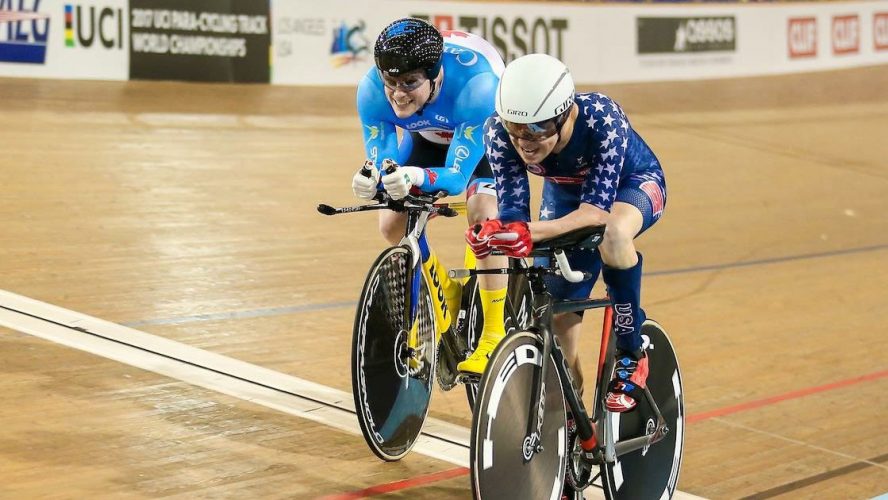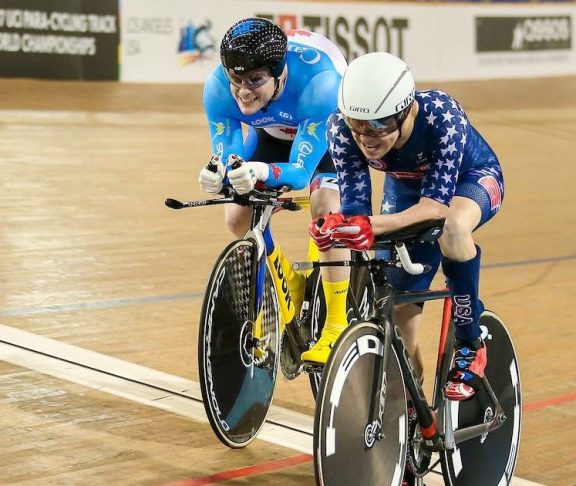“My disability was just the beginning of my life,” says Billy Lister, a 34-year-old Paralympian. “My life didn’t start until I became disabled, and that was when I was 17 years old.”
As a teenager, Lister was diagnosed with a rare brain abnormality. He had successful brain surgery, but then, a year later, a stroke left him fully neurologically paralyzed on his left side.
Growing up on Long Island in New York, Lister was active in sports like soccer, lacrosse and basketball. “I was the all-American kid who did everything, played everything,” he says.
After his stroke, Lister had multiple surgeries and rehabilitation to improve his condition.
“Rehab is life,” says Lister, who is fully ambulatory and uses an ankle foot orthotic to help him walk. “It’s all day, every day.”
Finding sports
Working a finance job in New York City, he looked happy on the outside. But, he reflects, “my life was never complete.”
Then, in 2011, he found activity and sports again. Introduced to the Challenged Athletes Foundation, a group that helps people with disabilities get active, he attended a paratriathlon camp and got on a bike for the first time since his stroke.
“That feeling was what ignited everything,” he says, explaining that he felt a sense of freedom riding the bike. “It’s something I’ll never forget for the rest of my life.”
Chasing dreams
Challenged Athletes Foundation encouraged Lister to be a paratriathlete, so he learned to bike, swim and run with his disability.
His first race was in 2013. Then, in 2015, Lister decided to “chase his dream” to be a Paralympian and moved to Colorado Springs to train.
He competed in Rio in 2016. Next up? Tokyo in 2020.
“My ultimate goal and aspiration is to become a four-time Paralympian,” says Lister, who has a “best friend and son” in his service dog, Potter.
“There is life after stroke,” he says. “Just because you have a stroke and your life is affected by it, you still can lead a meaningful, happy and successful life.”

